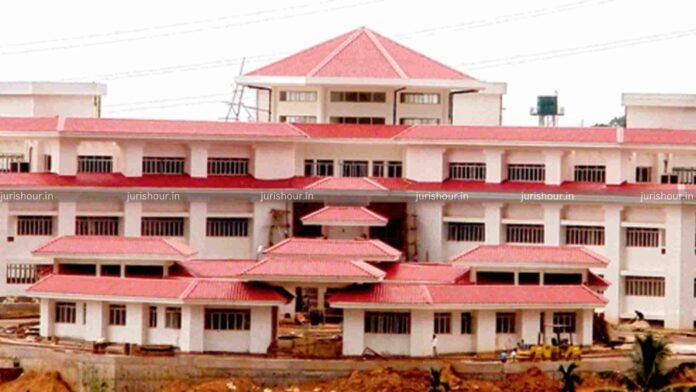The Tripura High Court has held that the customs dept. must challenge importer’s self-assessment of bills of entry under Section 128 of the Customs Act or accept it.
The bench of Chief Justice Mr. M.S. Ramachandra Rao and Justice S. Datta Purkayastha has relied on the decision of Supreme Court in ITC which specifically lays down that the self-assessment of the Bills of Entry by the importer has to be challenged by the department and it should be got modified under Section 128 or under other relevant provisions of the Act., if not the same has to be accepted by the department.
The respondent/assessee, Sri Rumon Dey was issued with two show cause notices alleging that he has evaded additional duties of customs by way of undervaluation in as much as cement from the same manufacturer in Bangladesh imported through Agartala, Land Customs Station (LCS) was having a higher MRP of Rs.320 per bag of 50 kg.
The issue involved in the present appeal is undervaluation of cement imported from Bangladesh. The department alleged that the declared MRP of the cement imported by the Appellant was much less as compared to the MRP declared on the cement imported from the same manufacturer through other ports. The different lots of the impugned goods were imported by different importers through different land ports though the goods were manufactured by the same manufacturer in Bangladesh.
The Appellant stated that the MRP printed on the goods imported through other ports can be different as the Place of importation itself was different and hence the difference in MRP is quite natural.
The Adjudicating Authority confirmed the demands and imposed an equal amount of duty as penalty.
Challenging the same, the appellant filed an appeal before the Commissioner (Appeals), Guwahati, on the ground that the impugned Bills of Entry duly which were self-assessed, were not challenged by the department, and hence they became final.
But the Commissioner (Appeals), Guwahati upheld both the orders-in-original and rejected the appeal filed by the appellant.
Challenging one of the orders, the respondent approached the CESTAT, Kolkata Bench.
The CESTAT noted that MRP on the same item is decided in consideration of a number of factors besides landing cost and duty element. In the instant case the goods were imported through different ports. That itself is a valid reason for the difference in price. There is no evidence to suggest that the goods so imported through different ports under different MRP were being sold at the same price. Hence, the price difference cannot be attributed to suppression of the value by the Appellant. Accordingly, the demand is not sustainable.
The court held that the Tribunal had correctly applied the principle to the facts of the case as it is not the case of the appellant that it had challenged at any point of time the self-assessment of the Bills of Entry by the assessee.
Case Details
Case Title: UOI Versus Sri Rumon Dey
Case No.: MFA (Customs Act) No.1 of 2025
Date: 22/09/2025
Counsel For Petitioner: Paramartha Datta, Advocate
Counsel For Respondent: Sayantan Talapatra, Advocate
Read More: Gold Smuggling : Delhi HC Waives Pre-Deposit Requirement for Suspended Assam Rifles Sepoy

